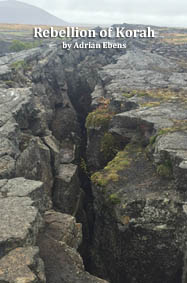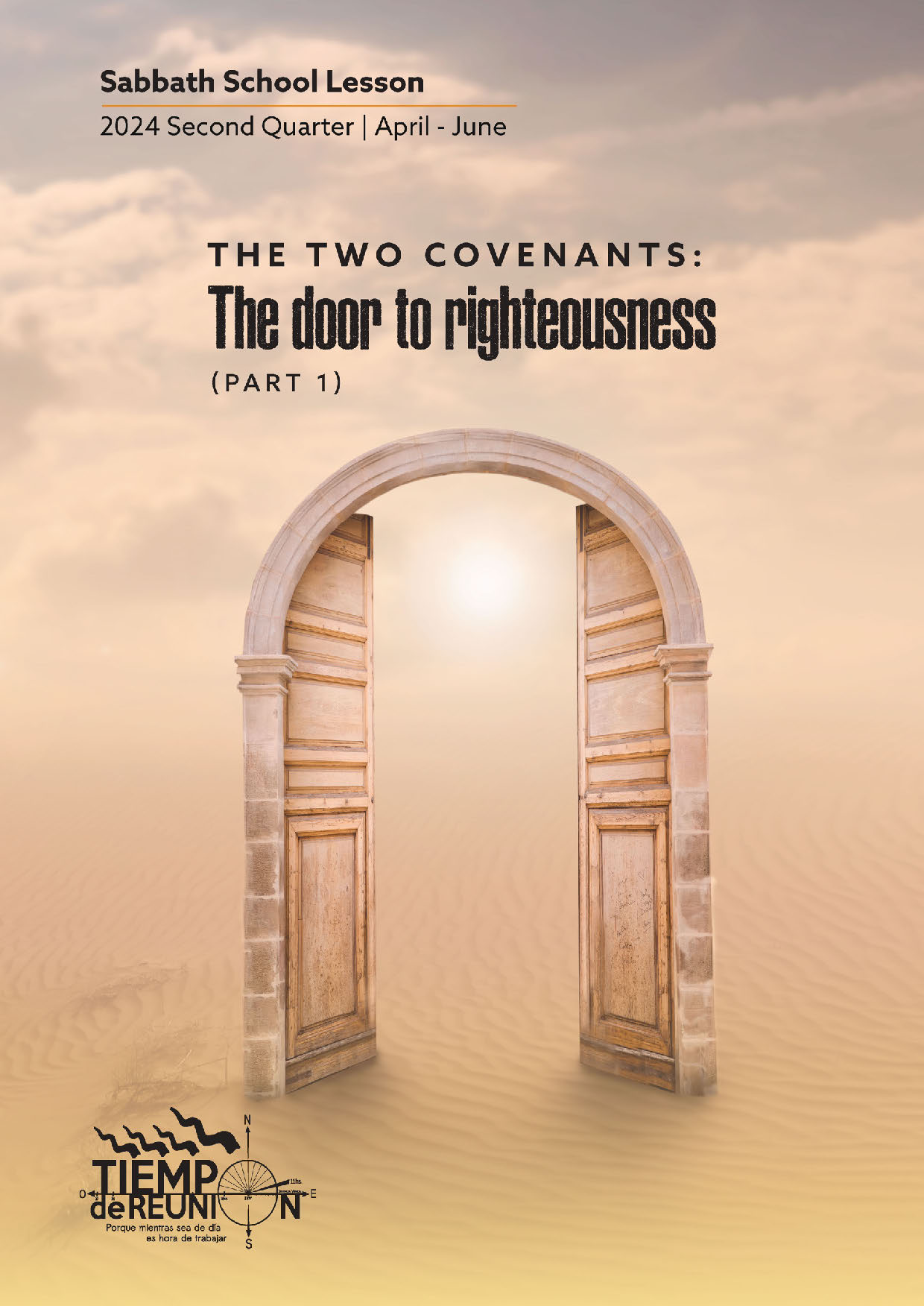"Divinity Did Not Die"
The quotation "Divinity did not die" has caused some to think that Jesus did not really die, that some part of Him continued with conscious awareness even though there was a physical death.
The quote reads as follows:
"I am the resurrection and the life" (John 11:25). He who said, "I lay down my life, that I might take it again" (John 10:17), came forth from the grave to life that was in Himself. Humanity died; divinity did not die. In His divinity, Christ possessed the power to break the bonds of death. He declares that He has life in Himself to quicken whom He will." (1SM 301)
How can we understand this "divinity did not die"? It does present some problems and has even raised charges of blasphemy against the author. For example: angelfire (http://www.angelfire.com/az/grahamsite/egwgnostic.html), a page that charges Ellen White with being a false prophet.
The writings of J. H. Waggoner, an Adventist pioneer, about the atonement helps to bring out the problem:
"No matter how exalted the pre-existent Son was; no matter how glorious, how powerful, or even eternal; if the manhood only died, the sacrifice was only human." (J. H. Waggoner, 1884, The Atonement In The Light Of Nature And Revelation, pages 164, 165)
He is saying that if it was only a physical human that died, then there was only a human sacrifice. He goes on to say that, yes, the divine Son of God could die:
"The declaration, that the divine Son of God could not die, is as far from the teachings of the Bible as darkness is from light. And we would ask the Trinitarian, to which of the two natures are we indebted for redemption? The answer must, of course, be, To that one which died or shed his blood for us; for “we have redemption through his blood.” Then it is evident that if only the human nature died, our Redeemer is only human, and that the divine Son of God took no part in the work of redemption, for he could neither suffer nor die." (J. H. Waggoner, 1884, The Atonement In The Light Of Nature And Revelation, page 173)
He is affirming that our Redeemer is both human and divine. He further says that Jesus did in fact die; He did not leave the human body to escape death. Jesus, the Son of God, did in fact die.
"It is often asserted that this exalted one came to earth and inhabited a human body, which he left in the hour of its death. But the Scriptures teach that this exalted one was the identical person that died on the cross; and in this consists the immense sacrifice made for man—the wondrous love of God and condescension of his only Son." (J. H. Waggoner, 1884, The Atonement In The Light Of Nature And Revelation, pages 152-154)
So how can this be resolved? I will attempt to explain it here but please recognize that I am doing this in large part as a personal exercise - an attempt to understand it for myself. I do not claim to have complete understanding of the subject. Here is the line of evidence that helps me.
Physical Divinity
Jesus, at His incarnation, left the physical attributes of divinity behind:
"Who, being in the form of God, thought it not robbery to be equal with God:" (Phil 2:6)
Some translations have wording something like: "not a thing to be grasped" in the sense of not holding on to something. He was willing to let go.
"who, though he was in the form of God, did not count equality with God a thing to be grasped," (Phil 2:6, ESV)
"who, though he was in the form of God, did not count equality with God a thing to be grasped," (Phil 2:6, RSV)
"Although from the beginning He had the nature of God He did not reckon His equality with God a treasure to be tightly grasped." (Phil 2:6, Weymouth New Testament)
My understanding of what He let go of; what He did not continue to grasp is that it was what could be called the physical attributes of divinity. The Son of God, with all the physical and character attributes of divinity, was willing to lay aside the physical attributes - the omnipresence, omnipotence and omniscience - and take on human form so that He could live (tabernacle) with us and so that He could die - because divinity (in possession of those attributes) cannot die.
Here is another verse that helps to clarify that while having divine nature physically, Jesus could not die:
"But we see Jesus, who was made [for a time] a little lower than the angels for the suffering of death, crowned with glory and honour; that he by the grace of God should taste death for every man." (Heb 2:9)
He had to be made into a lower form than He previously held. However, Jesus was not made lower than angels in any aspect of His character; it was physically that He was made lower. He still was the same being; He still was the Son of God even worthy of the worship of angels.
He did not hold on to; He was willing to let go of the physical attributes of divinity. In His nature, while on earth, His physical nature was 100% human.
Divine or Human, Not Both
A being is, physically, either divine or human but cannot be both at the same time. Here is some reasoning in support of that:
- A person cannot be present everywhere (omnipresent) and, at the same time be limited to a body in a single location.
- A person cannot be all-powerful (omnipotent) and, at the same time, be limited in power.
- A person cannot be all-knowing (omniscient) and, at the same time, be limited in knowledge.
It's like the story that is sometimes told of a young prince who wanted to see what the citizens of the kingdom really lived like. He took off His princely crown, royal robes, left his personal attendants and put on the clothes of a commoner and mixed among them. Yet he was still the same being, still a prince of the kingdom. He could return to the kingdom at any time.
Jesus showed that He was limited in His physical attributes:
"Then answered Jesus and said unto them, Verily, verily, I say unto you, The Son can do nothing of himself, but what he seeth the Father do: for what things soever he doeth, these also doeth the Son likewise." (John 5:19)
"Believest thou not that I am in the Father, and the Father in me? the words that I speak unto you I speak not of myself: but the Father that dwelleth in me, he doeth the works." (John 14:10)
The temptation in the wilderness shows that He could have cast off that limitation. The temptation to turn stones into bread would not have been a temptation if He could not have done it.
Yet He was the same individual; He was still God's Son with the privileges that includes. After His mission to planet earth, on His return to heaven, He was fully reinstated and I believe that would include a repossession of the attributes of divinity:
"Being made so much better than the angels, as he hath by inheritance obtained a more excellent name than they." (Heb 1:4)
And this happened "by inheritance" because of who He was - the Son of God.
"Divine Nature" Can Refer to Character Only
Let's consider another use of "divine nature" in the Spirit of Prophecy that night help to clarify this:
"Through His grace she (Mary Magdalene) became a partaker of the divine nature." (DA 568)
It was not suggested by this that Mary become omnipotent, omnipresent or omniscient. She was not taking on the physical characteristics of God but the character traits. God is just, righteous, holy etc but we are not denied the privilege of becoming god-like in those ways just because they are characteristics of divinity.
Consider this statement:
"In Christ divinity and humanity were united, and the only way in which man may be an overcomer is through becoming a partaker of the divine nature ... Divinity and humanity are blended in him who has the spirit of Christ." (SD 24)
In Christ, while on earth in flesh like ours, was a union of human flesh and divine character. In a similar way we may become partakers of the divine nature. We, while human in physical form, can partake of character traits of divinity. We can become loving, merciful, truthful, kind and patient and even holy. In fact, we are commanded to do so. For example:
"Because it is written, Be ye holy; for I am holy." (1 Pet 1:16)
"Put on therefore, as the elect of God, holy and beloved, bowels of mercies, kindness, humbleness of mind, meekness, longsuffering;" (Col 3:12)
But having those character traits does not make us divine, just partakers of divine characteristics. Neither does Jesus who is divine by virtue of being the Son of God, become merely human because He has a physical nature like ours.
So, "divinity did not die" is not talking about the physical being who did die but about the physical characteristics which did not "die" as He was not in possession of them at the time of His death.
When He died, He was as dead as anyone else who has ever died. The Father had no communication with Him while Jesus was dead. Jesus did not go anywhere while dead. He was dead; He paid the penalty for sin which is the second death.




